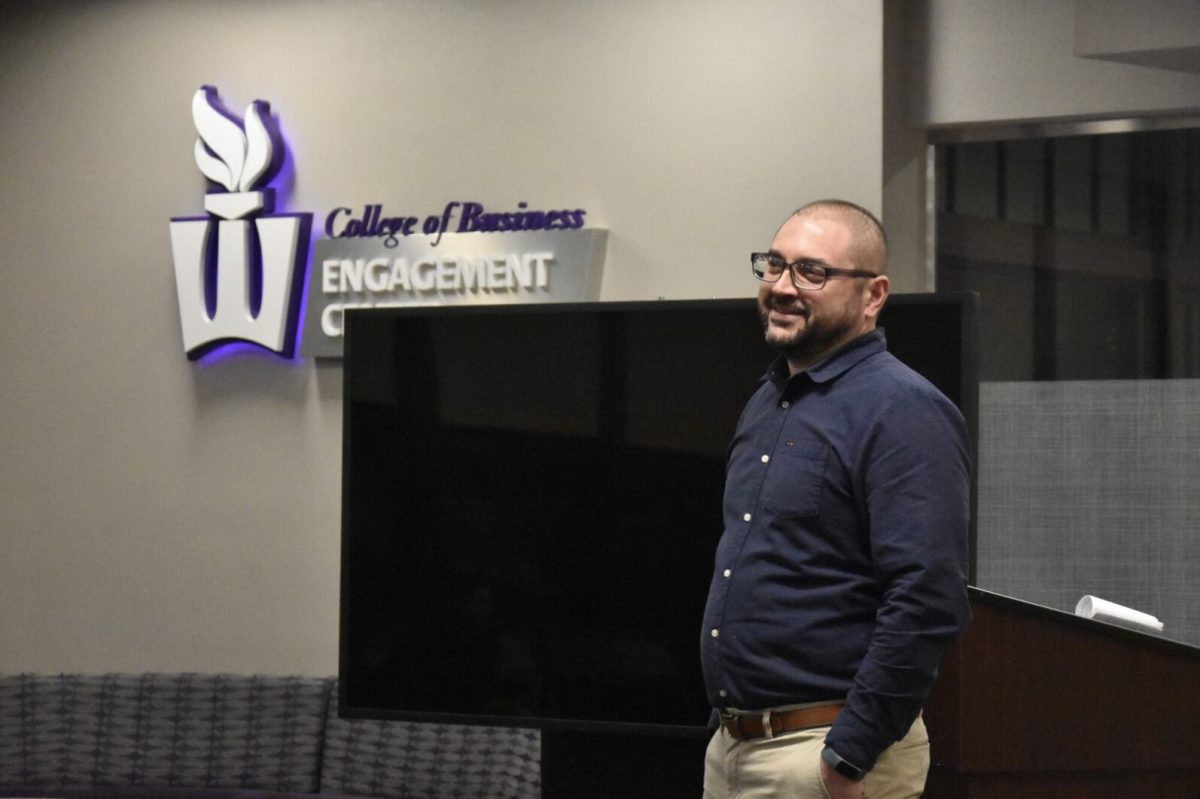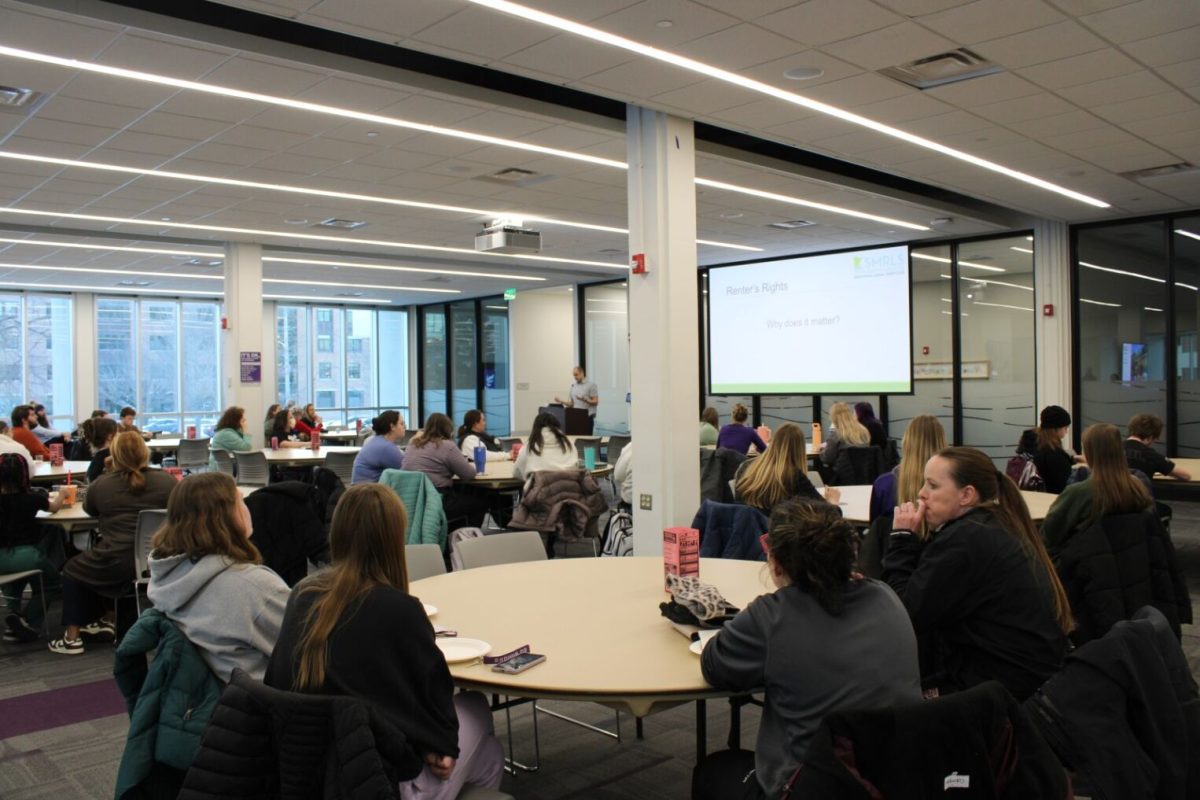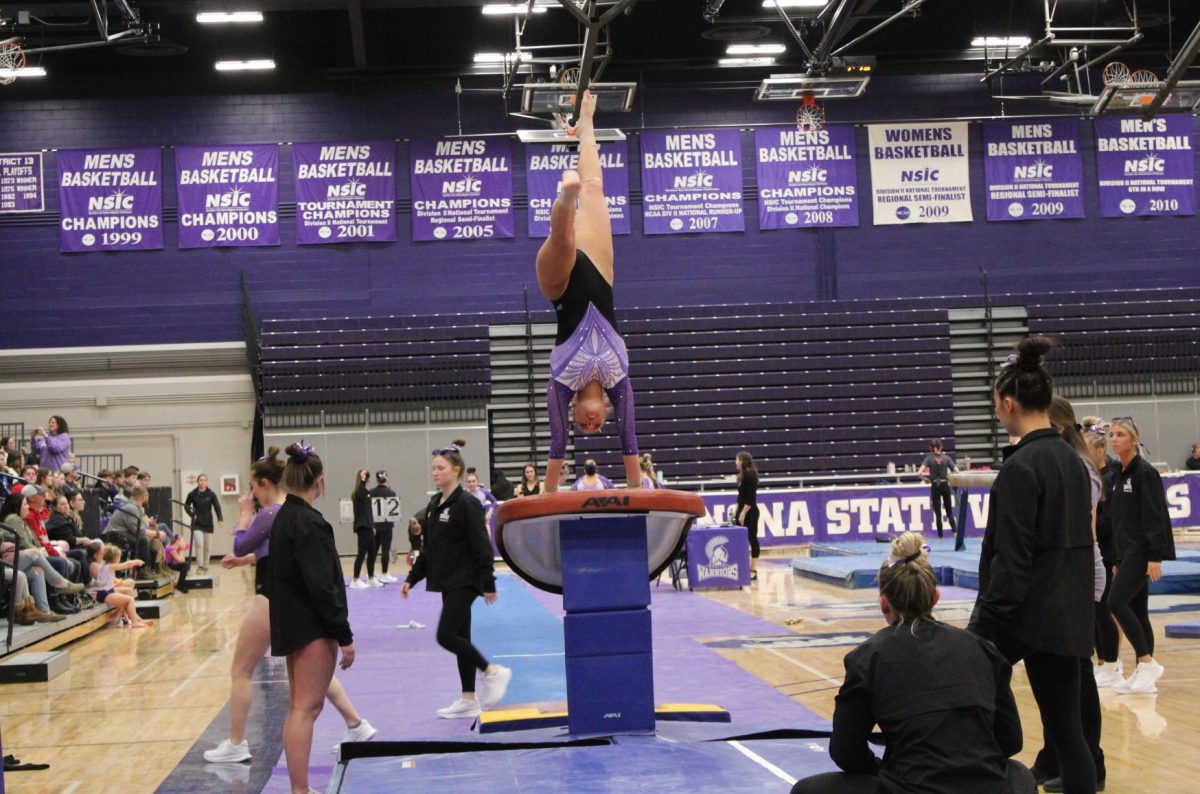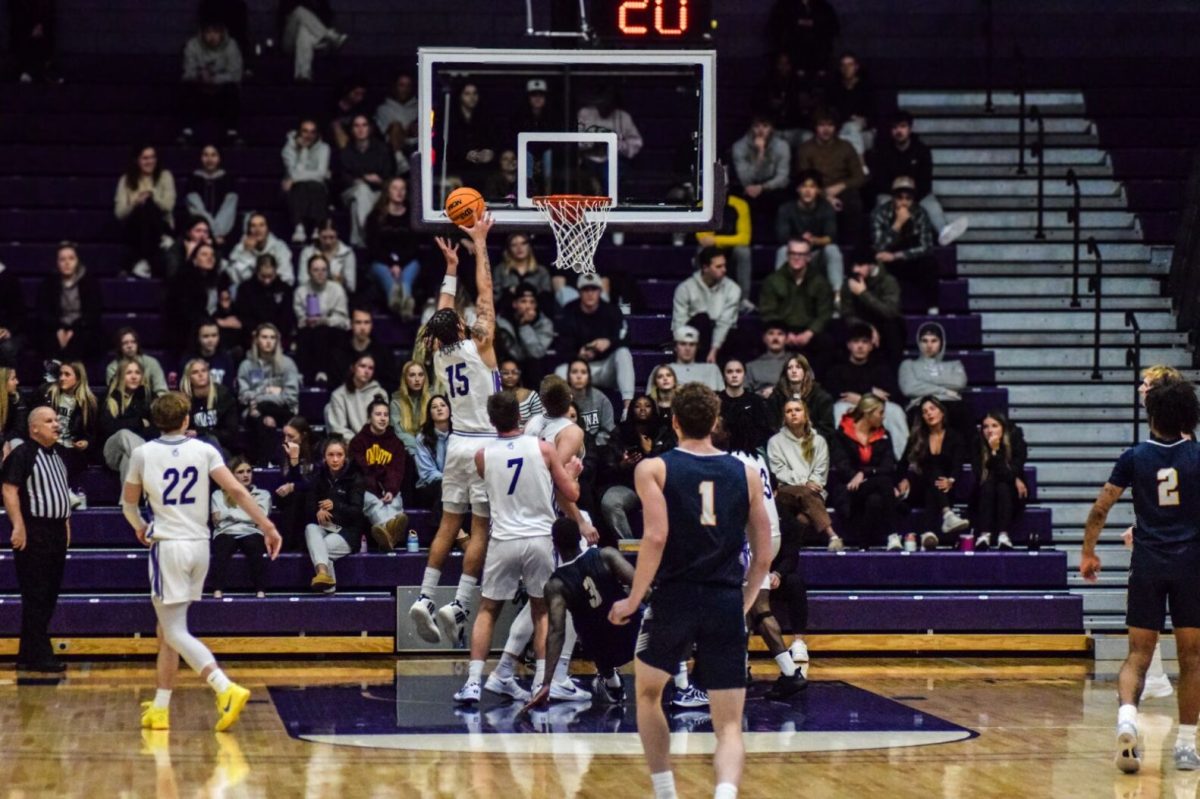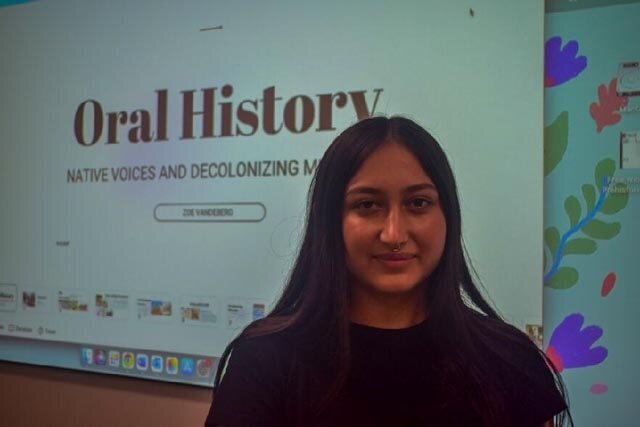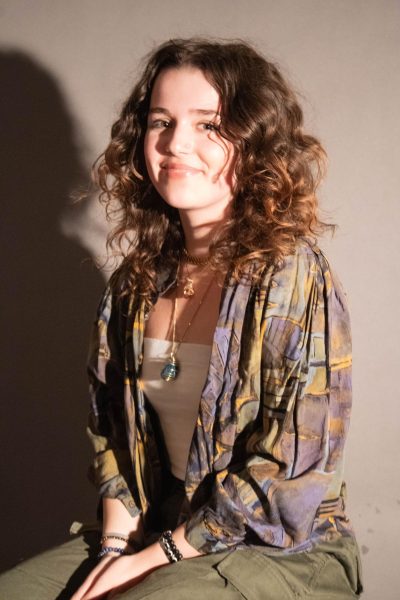It’s no secret that Winona State University is situated on Indigenous land. While situations like this aren’t uncommon, they are an example of the impacts of colonialism and colonization. This impact is consequently still affecting Native culture, which includes Native students at Winona State. The Native student population of Winona State might be in the minority, but they are not to be overlooked. One such student is Zoë VandeBerg, who is a part of the Turtle Island Student Organization (TISO) who decided to restart TISO because she was feeling a distinct lack of community on campus. VandeBerg shares that Winona State has a harmful past with Native people, and that the aim of this organization is to improve the space for future generations. She also states that the importance of this organization is to give a voice to Native students on Winona State’s campus.
On October 10, 2024, VandeBerg gave a presentation regarding Oral History, Native Voices, and Decolonizing Museums. During this presentation VandeBerg shared her experiences during an internship at the Minnesota Historical Society which was focused on oral history. VandeBerg describes oral histories as “a form of interviews that aim to give the interviewee more autonomy to tell their stories. Oral histories are less formally structured than traditional interviews and focus on a person’s stories, background, and experiences.” This internship allowed VandeBerg to learn about the inner workings of museums.
During this internship VandeBerg gained many valuable experiences. She shared about having the privilege to interact with Jessica Gokey, who is a native Ojibwe beadwork artist. VandeBerg had the opportunity to do an oral history with her and learn about her experiences, but not before getting to know Gokey outside of oral history. Building relationships is important when it comes to interviewing someone for an oral history. VandeBerg emphasized this during the presentation numerous times, where she shared about the importance of letting the person giving the oral history have the ability to do things that they are comfortable with. This was demonstrated through a few clips, in which Gokey was able to discuss personal things, and express her boundaries.
Making sure that the person is comfortable enough to express themselves freely and express autonomy is something that is being worked towards when it comes to oral history. Since oral histories are a tool to spread native voices, it is important that the interviewee has right over their own story. Since oral histories are often kept in museums, this right has often been impeded upon. Museums have impacted Native communities for a very long time. The advisor of the TISO, Mary Klinker, is a professor at Winona State shares that “Museum history is inextricably linked to settler colonialism, imperialism, and racism.” However, there have been efforts to include native people in museums. During the presentation, VandeBerg mentioned the Native American Initiative and the Native American Artist in Residence, which have been working towards this very goal.
It is important that Native people are included in conversations regarding them and their cultures. The biggest point of this presentation lies in the autonomy of Native people to tell their stories, share them and do with them what they please. Institutions, like museums, need to do their part in including Native voices. This includes Winona State, “the university has an obligation through its missions to amplify and support Native voices on campus,” VandeBerg said. Though things are moving in the right direction, there is always more work to be done.




